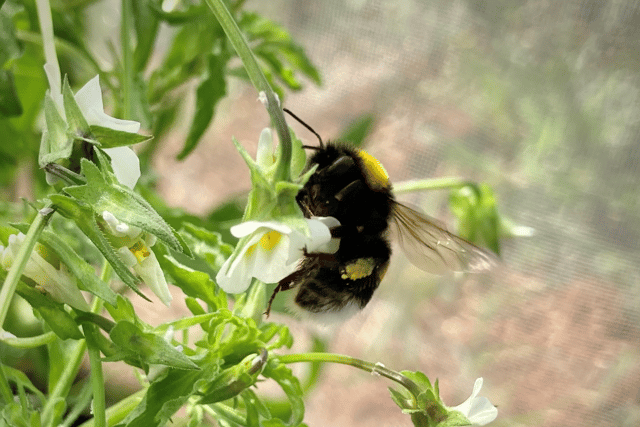Biodiversity loss: Flowers are rapidly evolving to self-pollinate as insects die out - study
and live on Freeview channel 276
Flowers appear to be evolving to become less showy and produce less nectar, scientists say, as the insects they traditionally rely on for pollination rapidly disappear.
A new study by French researchers, published on Thursday (21 December) in science journal New Phytologist, found some plants are starting to show reductions in floral displays and nectar production. Researchers believe this may be because they are evolving to rely less and less on bees, due to the insect pollinator's rapidly declining populations. But they say becoming less attractive might be a catch 22 for some flowering plant species, as they may eventually start to produce less nectar for pollinating insects - which could speed up their decline and eventually lead to their extinction.
Advertisement
Hide AdAdvertisement
Hide AdTo investigate recent evolutionary changes in flowers, scientists from the French National Centre for Scientific Research and the University of Montpellier compared field pansies growing in Paris now to those from 20 and 30 years ago. They found that today's flowers grew smaller, produced less nectar and were less frequently visited by pollinators than their ancestors.
Other recent studies have shown that insect pollinators are in trouble, with one showing that 75% of the biomass of flying insects has vanished from protected areas in the last 30 years - while another found some of the most common insect species are falling by as much as 8% each year. These declines in pollinator populations are largely attributed blamed on environmental changes, such as climate change, habitat destruction and fragmentation, agricultural land pollution and the introduction of other species.


The French research team also used Parisian field pansy seeds collected throughout the years to test whether the species' mating system had evolved in response to these recent pollinator declines. They measured the traits of 4,000 total plants, including the length of their petals on the first five flowers on the main stem of each plant - while also performing "pollinator preference" experiments involving bumblebees.
They found a consistent decrease of 20% on average in traits that plants use to attract pollinators, such as nectar volume. Today's flowers were also found to be 10% smaller, and far less visited by pollinators than their ancestors. The researchers said this provided strong evidence that the relationship between pollinators and plants, which has flourished for millions of years, is now deteriorating - likely irreversibly.
Advertisement
Hide AdAdvertisement
Hide AdLead author Pierre-Olivier Cheptou told SWNS this suggested higher levels of "selfing", or self-pollination - where pollen from the same plant arrives at the stigma of a flower. Very few plants typically self-pollinate without the aid of pollen vectors such as the wind or insects - and plants that do tend to become less focused on appearing attractive to pollinators, by developing enticing floral displays.
"Evolution towards selfing could be driven by natural selection over the short term but could impede long-term plant population survival," Cheptou said. "We documented trait evolution towards smaller and less conspicuous corollas, reduced nectar production and reduced attractiveness to bumblebees, with these trait shifts convergent across the four studied populations."
Their results illustrated how more mixed-mating species - which can pollinate by more than one means - may evolve towards a higher reliance on self-pollination, and reduced plant-pollinator interactions in the face of global change. But he warned: "If this rapid transition towards a selfing syndrome reflects a broader trend among Angiosperms, it may reflect a concerning extinction debt.
"Environmental changes may present a double jeopardy to pollinator populations, as they become victims of both the changes themselves and of plant trait evolution."
Comment Guidelines
National World encourages reader discussion on our stories. User feedback, insights and back-and-forth exchanges add a rich layer of context to reporting. Please review our Community Guidelines before commenting.
